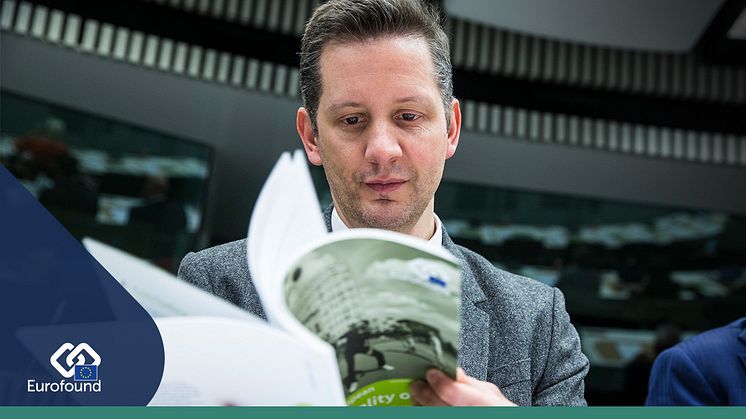
News -
Workers in newer Member States expected to work three weeks more per year
(Dublin, Ireland): Workers in Member States that joined the EU after May 2004 were expected to work close to three full working weeks per year more than those in ‘older’ Member States in 2018. Throughout the EU, the average collectively agreed annual working time was approximately 1,714 hours in 2018. However, Eurofound’s analysis shows that for older Member States the average was 1,687 hours, and for newer Member States it was 1,803. This is a difference of 116 hours, or the equivalent to three working weeks.
Eurofound’s latest biennial review of working time charts developments in a range of working time issues in the EU and Norway in 2017–2018. It finds that while the average collectively agreed working week across the EU remains unchanged since 2016 – at 38 hours – there was a slight decrease in the past two years in the 15 Member States that joined the EU before 2004 (EU15). Workers in newer Member States (EU13) work longer, a trend which is increasing in all sectors analysed, except for banking where working time decreased in newer Member States and stayed stable in the EU15.
At national level, the EU’s longest annual collectively agreed working hours are in Estonia (1,848 hours), where collective bargaining does not play a significant role in defining working time standards. The shortest annual working hours are found in France (1,602 hours), followed by Denmark, Sweden and Germany. This means that in 2018, according to the collectively agreed hours, workers in Estonia were supposed to work approximately 246 hours, or six weeks, more than their counterparts in France.
Eurofound’s analysis shows that, on a sectoral level, the banking sector continued to have the shortest average agreed normal working week in 2018 (37.5 hours), and the retail sector the longest (38.3 hours). In terms of collectively agreed paid annual leave, the average across the EU was 23.8 days, but was notably lower in newer Member States.
The trend observed in 2017-2018 of increasing actual working hours in newer Member States, while hours in older Member States remain stable, combined with differences in entitlement to annual leave, means that there is currently a reversal of the process of convergence in working time that has been taking place in recent years. This is likely to be an issue of policy concern, as ensuring convergence across various aspects of working life, including working time, is a priority for the EU.
More information
- Download the report ‘Working time in 2017-2018'
- Read about how Eurofound collects and analyses data on working time on the Working time topic page
- Consult Eurofound’s database on wages, working time and collective disputes

